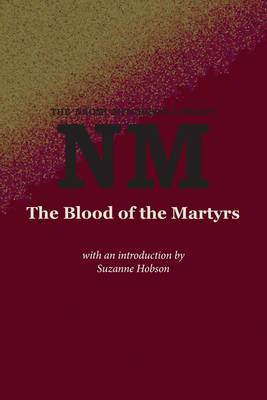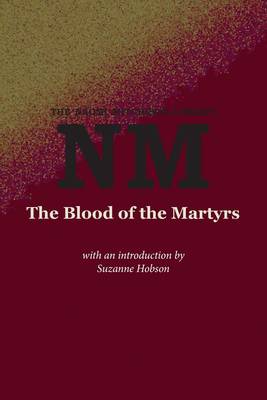
- Afhalen na 1 uur in een winkel met voorraad
- Gratis thuislevering in België vanaf € 30
- Ruim aanbod met 7 miljoen producten
- Afhalen na 1 uur in een winkel met voorraad
- Gratis thuislevering in België vanaf € 30
- Ruim aanbod met 7 miljoen producten
Omschrijving
Naomi Mitchison published The Blood of the Martyrs in October 1939, just a month after the outbreak of the Second World War. The novel marks a return to the historical subject matter for which she had made her name in widely acclaimed books such as The Conquered (1923) and The Corn God and the Spring Queen (1931). It is set in the Rome of Emperor Nero around the time of the Great Fire and follows the interconnected lives of two distinct social circles. The first is the household of the Senator Flavius Crispus who is nostalgic for the more tolerant and rational Rome of a previous age. The second is a small community of Christians made up of slaves and freedmen and women who meet in secret to share the 'love feast'. Moving between the two circles is the son of a defeated British king, Beric, who, deprived of legal and political status, has no secure place in either world. Beric's dilemma, and eventual fate, provides a focal point to a novel made up of multiple individual stories that converge in the same tragic end.
The late 1930s also saw the publication of Mitchison's political polemic, The Moral Basis of Politics. The Blood of the Martyrs is in many ways a fictional exploration of the same themes. Where, Mitchison asks, might we find a 'moral' answer to the threat posed by fascism and the increasing power of the Nation State over the rights of the individual? She finds hope, if not quite the solution, in the resistance offered by the early Christians to Nero's persecution. Dedicating her novel to political dissidents and minorities of her own time, she calls for a moral idea around which they too might unite to challenge the tyranny of State power in its characteristic twentieth-century forms.
Specificaties
Betrokkenen
- Auteur(s):
- Uitgeverij:
Inhoud
- Aantal bladzijden:
- 336
- Taal:
- Engels
- Reeks:
Eigenschappen
- Productcode (EAN):
- 9781849210287
- Verschijningsdatum:
- 27/08/2021
- Uitvoering:
- Paperback
- Formaat:
- Trade paperback (VS)
- Afmetingen:
- 152 mm x 229 mm
- Gewicht:
- 449 g

Alleen bij Standaard Boekhandel
Beoordelingen
We publiceren alleen reviews die voldoen aan de voorwaarden voor reviews. Bekijk onze voorwaarden voor reviews.











